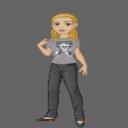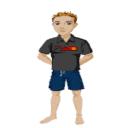Yahoo Answers is shutting down on May 4th, 2021 (Eastern Time) and beginning April 20th, 2021 (Eastern Time) the Yahoo Answers website will be in read-only mode. There will be no changes to other Yahoo properties or services, or your Yahoo account. You can find more information about the Yahoo Answers shutdown and how to download your data on this help page.
Trending News
Tracer Shotgun Shells?
I've discovered two things.
1. That I really enjoy trap shooting. I'd always been a rifle girl in the past.
2. That it's hard to tell how I'm shooting "off". High, low, what???
Are the tracer rounds made for trap/skeet any good as a training aid? If so, do you have any recommendations on good brands?
11 Answers
- 1 decade agoFavorite Answer
Avoid the tracer rounds that are made for shotguns. They are junk as was mentioned above. I have had the best luck using steel shot on cloudless days, just like shooting a BB gun you can see the shot fly through the air, albeit much faster through the air.
Otherwise the cardboard idea works very well too. Figure out a good medium range and set your big sheet of cardboard out there with a clay pigeon traced or taped on.
One of my biggest problems when getting started coming from a rifle was I closed one eye all the time. You get your depth perception from having both eyes open. I would try some shots at stationary targets with both eyes open to see if your accuracy or abilty to judge the flight path increases. It could be that simple.
- JDLv 71 decade ago
I have this source for "tracer" rounds that I use for my trap & skeet students and they are also used by many law enforcement agencies world wide, as a training aide. The can easily be purchased by the public. NOTE* These are the REAL thing not a gimmick.
Outlandsales.com
Outland Sales
162 Lumpkin County Parkway, Suite 10
Dahlonega, Georgia 30533
Telephone (706) 867-8325
I've used these personally and they work great. The NRA also uses these as training aids in their Trap Instructional classes and has for years. The only thing you must watch is to make sure the area you shoot in or range doesn't have a lot of dry grass on it. These can cause small fires in scrub brush if not careful. You can buy a (5) pack or box of 25 (Costs about $26 but you probably won't need a whole box) They are illegal to use in California,Massachusetts, and New York. And are restricted in Chicago & Baltimore,MD. Legal in all other states. These will help you. I had a few students with dominant eye issues and they made all the difference in the world. It is always best when you can "see" your shot pattern naturally without trying to "trace the wad". Don't let those that don't know tell you otherwise.Good Luck!
Source(s): Gunsmith/Gun Shop Owner/Firearms Instructor/ Competetive Shooter/Hunter/Outdoorsman NRA Life Member /29+ years experience - ?Lv 71 decade ago
To be honest, I've never used tracer shotshells, but from what I've heard of them, they do nothing for you. Apparently the component that gives you the "tracer" element is sort of like the wadding. It is easy to spot, but due to its different makeup, has a different trajectory than the actual shot. It should not be used as a guide to shot placement as it spins wildly out of control upon leaving the barrel.
However, with regular shot, although it can be notoriously difficult to see, it is not impossible. This is where someone like a coach or buddy will come in handy. Often times if you are following your target properly you will not be able to see the path of the shot. A good coach standing just behind you and focused about 15 yards out should be able to see the shot cloud as it flies. It will resemble a large cloud of nats in the air.
The best days to see it are on clear moderately sunny days. Too bright and you are blinded by the glare of the sun, too dim and it will blend into the darker sky. However, one of the best ways is to do it in low or dim light with bright illumination to the rear from spotlights that will illuminate the shot as it flies. On that note, once you get familiar with handling shotguns, you will often develop a sense for if you shot high, low, in front, or behind. It's hard to explain, but moments after you squeeze the trigger and feel the round go off, you almost seem to get an instant feeling of if you missed and where.
The best thing I can tell you is to practice, and don't bother with tracer shot.
- How do you think about the answers? You can sign in to vote the answer.
- Anonymous5 years ago
I think perhaps some gun cameras would shake in their mounts from the guns firing while the film was rolling. It wouldnt take too much movement to effect the bright glowing tracer light on a film.Theres lots of footage that show the tracers flying straight and not all squiggley like you describe. Just my thought.
- Anonymous5 years ago
For the best answers, search on this site https://shorturl.im/awkTn
Vibrations cause the camera to shake even if it is on a solid mount. A .50 caliber machinegun round has the recoil of about five 12 gauge shotgun shells fired at once. There's a whole lot of shakin' goin' on at ten .50s per second (600 rounds per minute).
- paul67337Lv 71 decade ago
I bought 100 shells of the Tru-Tracer rounds from Sportsmansguide. They were JUNK. There is a raisin sized piece of magnesium in the bottom of the wad. The powder in your shell is supposed to ignite it. For me, it only ignited about 40% of the time.
- 1 decade ago
the cost of tracer rounds will probaly be rediculously high.
When you are shooting trap, if you miss a target, look for where the wad is, and compare it to how it lines up with the target.
Source(s): trap shooter - Anonymous1 decade ago
If you want to know if your shooting high or low you should get a piece of cardboard mark a central aiming point and fire a shot at it and see if your patern is centered if not adjust your shooting techingue or get your gun altered to suit you.
Source(s): Shot over 1000 clay targets







